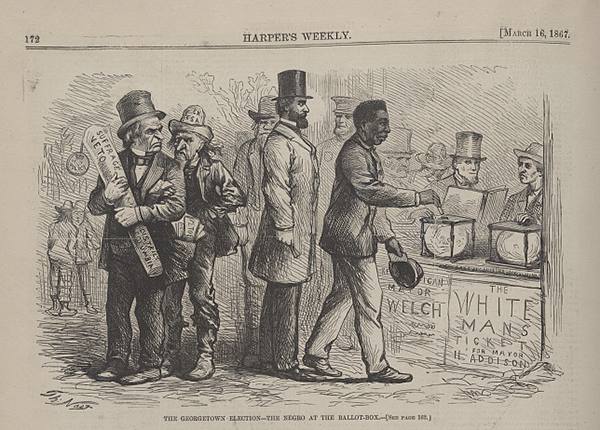Summary
The Civil Rights Cases followed the end of Reconstruction, at a time of continued widespread discrimination against the newly freed Black population in the South. These cases addressed the constitutionality of the Civil Rights Act of 1875—the last major civil rights law passed by Congress during Reconstruction. The Supreme Court had already minimized the impact of the Fourteenth Amendment by eviscerating its “privileges or immunities” clause in its earlier Slaughter-House Cases decision. Now, in The Civil Rights Cases, the Court held that the amendment required “state action” and did not apply to privately owned “public accommodations” likes hotels, restaurants, and theaters. Over a decade later, in Plessy v. Ferguson, the Supreme Court would hold that state-sanctioned segregation in public accommodations was also constitutional.







